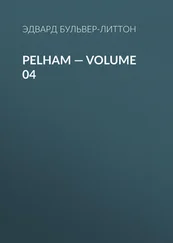Эдвард Бульвер-Литтон - Pelham — Complete
Здесь есть возможность читать онлайн «Эдвард Бульвер-Литтон - Pelham — Complete» — ознакомительный отрывок электронной книги совершенно бесплатно, а после прочтения отрывка купить полную версию. В некоторых случаях можно слушать аудио, скачать через торрент в формате fb2 и присутствует краткое содержание. Жанр: Альтернативная история, literature_19, Европейская старинная литература, foreign_antique, foreign_prose, Исторические приключения, на английском языке. Описание произведения, (предисловие) а так же отзывы посетителей доступны на портале библиотеки ЛибКат.
- Название:Pelham — Complete
- Автор:
- Жанр:
- Год:неизвестен
- ISBN:нет данных
- Рейтинг книги:3 / 5. Голосов: 1
-
Избранное:Добавить в избранное
- Отзывы:
-
Ваша оценка:
- 60
- 1
- 2
- 3
- 4
- 5
Pelham — Complete: краткое содержание, описание и аннотация
Предлагаем к чтению аннотацию, описание, краткое содержание или предисловие (зависит от того, что написал сам автор книги «Pelham — Complete»). Если вы не нашли необходимую информацию о книге — напишите в комментариях, мы постараемся отыскать её.
Pelham — Complete — читать онлайн ознакомительный отрывок
Ниже представлен текст книги, разбитый по страницам. Система сохранения места последней прочитанной страницы, позволяет с удобством читать онлайн бесплатно книгу «Pelham — Complete», без необходимости каждый раз заново искать на чём Вы остановились. Поставьте закладку, и сможете в любой момент перейти на страницу, на которой закончили чтение.
Интервал:
Закладка:
“My dear Sir,” said Thornton, “I am very sorry I could not see you to breakfast—a particular engagement prevented me—verbum sap. Mr. Pelham, you take me, I suppose—black eyes white skin, and such an ancle;” and the fellow rubbed his great hands and chuckled.
“Well,” said I, “I cannot blame you, whatever may be my loss—a dark eye and a straight ancle are powerful excuses. What says Mr. Warburton to them?” and I turned to the object of my interrogatory.
“Really,” he answered drily, and without moving from his uncourteous position, “Mr. Thornton only can judge of the niceties of his peculiar tastes, or the justice of his general excuses.”
Mr. Warburton said this in a sarcastic, bitter tone. Thornton bit his lip, more, I should think, at the manner than the words, and his small grey eyes sparkled with a malignant and stern expression, which suited the character of his face far better than the careless levity and enjouement which his glances usually denoted.
“They are no such great friends after all,” thought I; “and now let me change my attack. Pray,” I asked, “among all your numerous acquaintances at Paris, did you ever meet with a Mr. Tyrrell?”
Warburton started from his chair, and as instantly re-seated himself. Thornton eyed me with one of those peculiar looks which so strongly reminded me of a dog, in deliberation whether to bite or run away.
“I do know a Mr. Tyrrell!” he said, after a short pause.
“What sort of a person is he?” I asked with an indifferent air—“a great gamester, is he not?”
“He does slap it down on the colours now and then,” replied Thornton. “I hope you don’t know him, Mr. Pelham!”
“Why?” said I, evading the question. “His character is not affected by a propensity so common, unless, indeed, you suppose him to be more a gambler than a gamester, viz. more acute than unlucky.”
“God forbid that I should say any such thing,” replied Thornton; “you won’t catch an old lawyer in such imprudence.”
“The greater the truth, the greater the libel,” said Warburton, with a sneer.
“No,” resumed Thornton, “I know nothing against Mr. Tyrrell—nothing! He may be a very good man, and I believe he is; but as a friend, Mr. Pelham, (and Mr. Thornton grew quite affectionate), I advise you to have as little as possible to do with that sort of people.”
“Truly,” said I, “you have now excited my curiosity. Nothing, you know, is half so inviting as mystery.”
Thornton looked as if he had expected a very different reply; and Warburton said, in an abrupt tone—“Whoever enters an unknown road in a fog may easily lose himself.”
“True,” said I; “but that very chance is more agreeable than a road where one knows every tree! Danger and novelty are more to my taste than safety and sameness. Besides, as I never gamble myself, I can lose nothing by an acquaintance with those who do.”
Another pause ensued—and, finding I had got all from Mr. Thornton and his uncourteous guest that I was likely to do, I took my hat and my departure.
“I do not know,” thought I, “whether I have profited much by this visit. Let me consider. In the first place, I have not ascertained why I was put off by Mr. Thornton—for as to his excuse, it could only have availed one day, and had he been anxious for my acquaintance, he would have named another. I have, however, discovered, first, that he does not wish me to form any connection with Tyrrell; secondly, from Warburton’s sarcasm, and his glance of reply, that there is but little friendship between those two, whatever be the intimacy; and, thirdly, that Warburton, from his dorsal positions, so studiously preserved, either wished to be uncivil or unnoticed.” The latter, after all, was the most probable; and, upon the whole, I felt more than ever convinced that he was the person I suspected him to be.
CHAPTER XXVI
Tell how the fates my giddy course did guide,
The inconstant turns of every changing hour.
Je me retire donc.—Adieu, Paris, adieu!
When I returned home, I found on my table the following letter from my mother:
“My dear Henry,
“I am rejoiced to hear you are so well entertained at Paris—that you have been so often to the D—s and C—s; that Coulon says you are his best pupil—that your favourite horse is so much admired—and that you have only exceeded your allowance by a L1,000; with some difficulty I have persuaded your uncle to transmit you an order for L1,500, which will, I trust, make up all your deficiencies.
“You must not, my dear child, be so extravagant for the future, and for a very good reason, namely, I do not see how you can. Your uncle, I fear, will not again be so generous, and your father cannot assist you. You will therefore see more clearly than ever the necessity of marrying an heiress: there are only two in England (the daughters of gentlemen) worthy of you—the most deserving of these has L10,000 a year, the other has L150,000. The former is old, ugly, and very ill tempered; the latter tolerably pretty, and agreeable, and just of age; but you will perceive the impropriety of even thinking of her till we have tried the other. I am going to ask both to my Sunday soirees, where I never admit any single men, so that there, at least, you will have no rivals.
“And now, my dear son, before I enter into a subject of great importance to you, I wish to recal to your mind that pleasure is never an end, but a means—viz. that in your horses and amusements at Paris—your visits and your liaisons—you have always, I trust, remembered that these were only so far desirable as the methods of shining in society. I have now a new scene on which you are to enter, with very different objects in view, and where any pleasures you may find have nothing the least in common with those you at present enjoy.
“I know that this preface will not frighten you as it might many silly young men. Your education has been too carefully attended to, for you to imagine that any step can be rough or unpleasant which raises you in the world.
“To come at once to the point. One of the seats in your uncle’s borough of Buyemall is every day expected to be vacated; the present member, Mr. Toolington, cannot possibly live a week, and your uncle is very desirous that you should fill the vacancy which Mr. Toolington’s death will create. Though I called it Lord Glenmorris’s borough, yet it is not entirely at his disposal, which I think very strange, since my father, who was not half so rich as your uncle, could send two members to Parliament without the least trouble in the world—but I don’t understand these matters. Possibly your uncle (poor man) does not manage them well. However, he says no time is to be lost. You are to return immediately to England, and come down to his house in—shire. It is supposed you will have some contest, but be certain eventually to come in.
“You will also, in this visit to Lord Glenmorris, have an excellent opportunity of securing his affection; you know it is some time since he saw you, and the greater part of his property is unentailed. If you come into the House you must devote yourself wholly to it, and I have no fear of your succeeding; for I remember, when you were quite a child, how well you spoke, ‘My name is Norval,’ and ‘Romans, countrymen, and lovers,’ I heard Mr. Canning speak the other day, and I think his voice is quite like yours; in short, I make no doubt of seeing you in the ministry in a very few years.
“You see, my dear son, that it is absolutely necessary you should set out immediately. You will call on Lady—, and you will endeavour to make firm friends of the most desirable among your present acquaintance; so that you may be on the same footing you are now, should you return to Paris. This a little civility will easily do: nobody (as I before observed), except in England, ever loses by politeness; by the by, that last word is one you must never use, it is too Gloucester-place like.
Читать дальшеИнтервал:
Закладка:
Похожие книги на «Pelham — Complete»
Представляем Вашему вниманию похожие книги на «Pelham — Complete» списком для выбора. Мы отобрали схожую по названию и смыслу литературу в надежде предоставить читателям больше вариантов отыскать новые, интересные, ещё непрочитанные произведения.
Обсуждение, отзывы о книге «Pelham — Complete» и просто собственные мнения читателей. Оставьте ваши комментарии, напишите, что Вы думаете о произведении, его смысле или главных героях. Укажите что конкретно понравилось, а что нет, и почему Вы так считаете.












